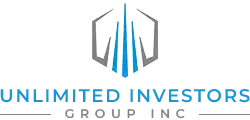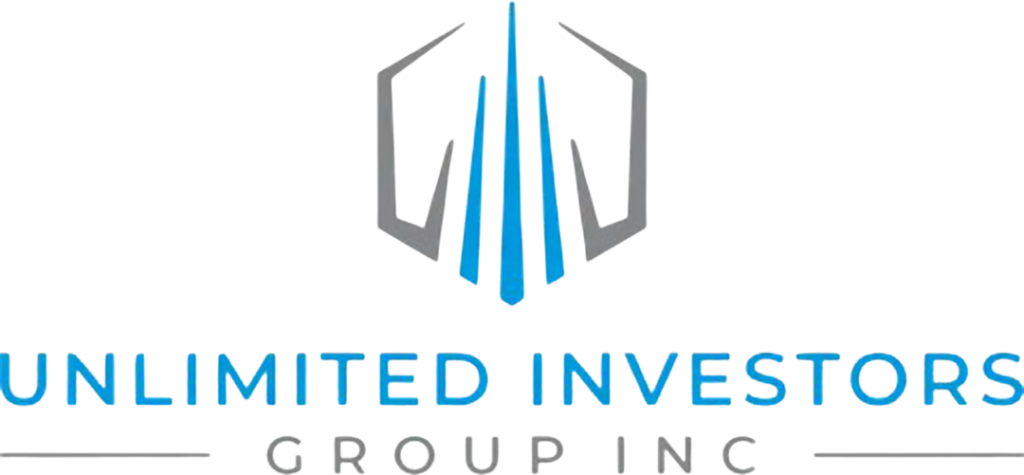The Ultimate Guide to Getting Quality Insurance Agent Leads in North Carolina: Strategies That Actually Work
Finding quality insurance agent leads in North Carolina has become increasingly challenging in today’s competitive marketplace. With the digital transformation of the insurance industry and evolving consumer behaviors, insurance agents must adapt their lead generation strategies to stay ahead. The traditional methods of door-to-door sales and cold calling are no longer sufficient to meet the demands of modern insurance consumers, making it crucial for agents to explore innovative approaches to lead generation.
The North Carolina insurance market presents unique opportunities and challenges for agents seeking to grow their business. With a population of over 10.6 million people and a diverse economy spanning urban centers and rural communities, the potential for insurance sales is substantial. However, this potential also attracts fierce competition, making it essential for agents to implement effective lead generation strategies that can help them stand out in a crowded marketplace.
Current lead generation practices have evolved significantly in recent years. The rise of digital marketing, social media, and automated lead generation tools has created new opportunities for insurance agents to connect with potential clients. However, these technological advancements have also raised customer expectations regarding personalized service and immediate response times. Agents must now balance the efficiency of automated systems with the personal touch that builds trust and long-term relationships.
This comprehensive guide will provide you with actionable insights and strategies to generate high-quality insurance leads in North Carolina. We’ll explore both traditional and digital methods, helping you understand:
- The current state of the North Carolina insurance market
- Effective lead generation strategies tailored to your target audience
- Tools and technologies that can streamline your lead generation process
- Best practices for lead nurturing and conversion
- Cost-effective approaches to maximize your ROI
Whether you’re a seasoned insurance agent looking to optimize your lead generation efforts or new to the North Carolina market, this guide will equip you with the knowledge and tools necessary to succeed in today’s competitive landscape. By implementing these strategies, you’ll be better positioned to attract quality leads, convert them into loyal clients, and grow your insurance business sustainably.
Understanding the North Carolina Insurance Market
The North Carolina insurance market presents a robust landscape of opportunities for agents seeking quality insurance agent leads North Carolina. With a population exceeding 10.5 million residents and a steady growth rate of 1.1% annually, the state offers a substantial pool of potential clients across various insurance sectors. The market’s diversity spans from bustling urban centers like Charlotte and Raleigh to rural communities in the western mountains and coastal regions, each presenting unique insurance needs and opportunities.
Market Size and Demographics
North Carolina’s insurance market reflects its diverse population and economic landscape. The state’s median age of 38.7 years creates a balanced market for both life and property insurance products. The growing retiree population, particularly in areas like Asheville and Wilmington, drives demand for Medicare supplements and long-term care insurance. Meanwhile, the thriving technology sector in the Research Triangle generates needs for group benefits and professional liability coverage.
Target Audiences and Market Segments
Key target demographics in North Carolina include young professionals in urban areas, growing families in suburban communities, and retirees in coastal and mountain regions. The state’s robust small business sector, comprising over 890,000 enterprises, creates significant opportunities for commercial insurance products. Understanding these distinct market segments is crucial for developing targeted lead generation strategies.
Insurance Requirements and Regulations
North Carolina maintains strict insurance requirements that drive market demand. These include:
- Mandatory auto insurance with minimum liability coverage of 30/60/25
- Workers’ compensation insurance for businesses with three or more employees
- Property insurance requirements in coastal regions
- Health insurance mandates under federal and state regulations
Competitive Analysis
The competitive landscape in North Carolina features a mix of national carriers, regional insurers, and independent agencies. While competition is robust, the market’s continuous growth creates ongoing opportunities for new business acquisition. Success often depends on specialization, local market knowledge, and effective lead generation strategies that target underserved segments.
Market Trends and Opportunities
Several key trends are shaping the North Carolina insurance market. The rise of remote work has increased demand for home-based business coverage. Climate-related concerns drive interest in comprehensive property insurance, particularly in coastal areas. Additionally, the growing gig economy creates opportunities for specialized coverage products. These trends, combined with technological advancements in insurance delivery, create fertile ground for innovative marketing and lead generation approaches.
The state’s economic growth, particularly in sectors like technology, healthcare, and manufacturing, continues to drive insurance demand across all categories. Understanding these market dynamics is essential for agents looking to capitalize on lead generation opportunities and build sustainable business growth in North Carolina’s diverse insurance landscape.
Types of Insurance Leads in North Carolina
When it comes to insurance agent leads North Carolina, understanding the different types of leads available is crucial for building a successful insurance business. Each lead type comes with its own set of advantages and challenges, and knowing how to leverage each effectively can make a significant difference in your conversion rates and overall success.
Exclusive vs. Shared Leads
Exclusive leads are generally more expensive but offer higher conversion potential since you’re the only agent contacting these prospects. These leads are particularly valuable in competitive markets like Charlotte, Raleigh, and Durham. Shared leads, while more affordable, are distributed to multiple agents, requiring faster response times and more competitive pricing strategies to win the business.
Real-time vs. Aged Leads
Real-time leads are generated when prospects actively seek insurance quotes or information. These leads are typically more expensive but offer higher conversion rates due to their immediacy. Aged leads, which are typically older than 30 days, can be purchased at a discount and still provide value, especially for agents who excel at nurturing long-term relationships and have effective follow-up systems in place.
Online vs. Offline Leads
Online leads are generated through digital channels such as websites, social media, and email campaigns. These leads often come with detailed information about the prospect’s interests and needs. Offline leads, generated through traditional marketing methods like direct mail or local events, may require more initial qualification but can result in stronger personal connections.
Cold vs. Warm Leads
Cold leads have no prior interaction with your agency and require more effort to convert. However, they can be valuable for expanding your market presence. Warm leads have already shown interest in insurance products or have been referred by existing clients, making them more likely to convert with proper nurturing.
Referral Leads
Referral leads are often the highest quality leads available. These come from satisfied clients who recommend your services to friends, family, or colleagues. Implementing a structured referral program can help generate a steady stream of these valuable leads.
Quality Indicators for Lead Types
When evaluating different lead types, consider these key quality indicators:
- Contact information accuracy and completeness
- Recency of lead generation
- Prospect’s stage in the buying cycle
- Demographics and insurance needs alignment
- Previous engagement with insurance providers
- Source credibility and conversion history
Understanding these various lead types and their characteristics allows agents to develop targeted strategies for each category, optimizing their lead generation efforts and maximizing return on investment. The key is to maintain a diverse lead generation approach while focusing resources on the lead types that best match your agency’s strengths and goals.
Digital Lead Generation Strategies
In today’s digital age, generating insurance agent leads in North Carolina requires a strong online presence and strategic approach to digital marketing. The landscape of lead generation has evolved significantly, making it essential for insurance agents to adapt and implement effective digital strategies to stay competitive in the market.
SEO Optimization for Local Searches
Local SEO is crucial for insurance agents looking to capture relevant traffic in their specific geographic areas. By optimizing your website and online content for local search terms, you can attract potential clients who are actively searching for insurance services in North Carolina. This includes optimizing your Google My Business listing, creating location-specific landing pages, and ensuring your NAP (Name, Address, Phone) information is consistent across all online platforms.
Pay-Per-Click Advertising
PPC advertising can be a powerful tool for generating immediate insurance agent leads in North Carolina. Through platforms like Google Ads and Bing Ads, you can target specific demographics, locations, and search intent. The key is to create compelling ad copy, use relevant keywords, and develop targeted landing pages that convert visitors into leads.
Social Media Marketing
Social media platforms offer unique opportunities to connect with potential clients and build brand awareness. Focus on platforms where your target audience spends time, such as LinkedIn for business insurance or Facebook for personal lines. Share valuable content, engage with followers, and use paid social advertising to expand your reach.
Effective Social Media Strategies Include:
- Regular posting of educational content
- Sharing client testimonials and success stories
- Running targeted ad campaigns
- Engaging with local community groups
- Utilizing platform-specific features like Facebook Live or LinkedIn Articles
Email Marketing Campaigns
Email marketing remains one of the most cost-effective digital strategies for nurturing leads and maintaining client relationships. Develop segmented email lists and create personalized campaigns that provide value to your subscribers. Regular newsletters, policy updates, and educational content can help keep your agency top-of-mind.
Content Marketing
Creating high-quality, relevant content is essential for attracting and converting leads. Develop a content strategy that addresses common insurance questions, explains policy options, and provides valuable insights into risk management. Regular blog posts, videos, and downloadable resources can position you as an authority in the insurance industry.
Marketing Automation Tools
Implementing marketing automation tools can streamline your lead generation efforts and improve efficiency. These tools can help you track leads, automate follow-up sequences, and measure campaign performance. Popular options include HubSpot, Mailchimp, and insurance-specific CRM systems.
Key Benefits of Marketing Automation:
- Consistent lead nurturing
- Time-saving workflow automation
- Improved lead scoring and qualification
- Better tracking and analytics
- Personalized communication at scale
Remember that successful digital lead generation requires a balanced approach. Combine multiple strategies and continuously test and optimize your efforts to determine what works best for your agency. By implementing these digital marketing strategies effectively, you can create a steady stream of qualified leads for your insurance business in North Carolina.
Traditional Lead Generation Methods
While digital marketing dominates today’s landscape, traditional lead generation methods remain highly effective for insurance agents in North Carolina. These time-tested approaches often yield high-quality insurance agent leads North Carolina professionals can rely on, particularly when building local presence and community relationships.
Networking Events
Professional networking events provide invaluable opportunities for insurance agents to connect with potential clients face-to-face. Local business mixers, industry conferences, and professional association meetings offer platforms to showcase expertise and build meaningful relationships. The key is to approach these events with a genuine interest in helping others rather than an obvious sales agenda.
Direct Mail Campaigns
Despite the digital age, direct mail campaigns continue to deliver impressive results, especially among older demographics. Personalized letters, postcards, and promotional materials can effectively reach potential clients who might not be as active online. The key to successful direct mail campaigns lies in targeted messaging, professional design, and consistent follow-up strategies.
Local Partnerships
Developing strategic partnerships with local businesses can create a steady stream of qualified leads. Real estate agents, car dealerships, mortgage brokers, and financial advisors often serve clients who need insurance services. Building mutually beneficial relationships with these professionals can lead to consistent referrals and business growth.
Community Involvement
Active participation in community events and local causes helps establish credibility and visibility within your target market. Sponsoring local sports teams, participating in charity events, or volunteering for community service projects demonstrates commitment to the community while creating organic opportunities for lead generation.
Effective Community Engagement Activities:
- Sponsor local youth sports teams
- Participate in community cleanup events
- Host educational workshops on insurance topics
- Support local charitable organizations
- Participate in community festivals and fairs
Chamber of Commerce Connections
Local Chambers of Commerce provide excellent networking opportunities and resources for insurance agents. Active membership often includes access to business directories, networking events, and promotional opportunities. Many chambers also offer speaking opportunities where agents can share their expertise and establish themselves as industry authorities.
Face-to-Face Marketing
Personal interactions remain one of the most effective ways to generate high-quality leads. Whether through scheduled appointments, walk-in meetings, or casual conversations, face-to-face marketing allows agents to build trust and rapport while addressing specific concerns and needs. This personal touch often results in higher conversion rates and longer-lasting client relationships.
Success in traditional lead generation requires consistent effort and a genuine commitment to relationship building. By combining these time-tested methods with modern digital strategies, insurance agents can create a comprehensive approach to lead generation that maximizes their market presence and business growth potential.
Lead Generation Tools and Technologies
In today’s digital age, insurance agent leads North Carolina professionals need to leverage the right tools and technologies to stay competitive. The landscape of lead generation has evolved significantly, making it essential to utilize modern solutions that can streamline and optimize your lead generation efforts. Let’s explore the essential tools that can transform your lead generation process.
CRM Systems
Customer Relationship Management (CRM) systems serve as the backbone of any successful lead generation strategy. These platforms help you track and manage all interactions with potential clients, ensuring no opportunity falls through the cracks. Modern CRM systems designed for insurance agents offer features like automated follow-up reminders, document storage, and pipeline visualization. Popular options include Salesforce, HubSpot, and industry-specific solutions like AgencyBloc.
Lead Management Software
Dedicated lead management software goes beyond basic CRM functionality to focus specifically on lead handling and nurturing. These tools often include features for lead scoring, distribution, and tracking. They can automatically route leads to appropriate team members and provide insights into lead quality and conversion rates. Some leading solutions include Lead Simple, InsuredMine, and Agency Matrix.
Marketing Automation Platforms
Marketing automation platforms help streamline repetitive tasks and create consistent communication channels with potential clients. These tools can handle email campaigns, social media posting, and content distribution. They often include features for A/B testing, audience segmentation, and performance tracking. Popular platforms include Mailchimp, ActiveCampaign, and Constant Contact.
Analytics Tools
Understanding the effectiveness of your lead generation efforts requires robust analytics tools. These solutions help track key metrics such as conversion rates, cost per lead, and ROI. Google Analytics remains a fundamental tool, but insurance-specific analytics platforms can provide deeper insights into industry-relevant metrics. Consider tools like:
- Google Analytics 4
- CallRail for phone tracking
- HotJar for website behavior analysis
- Agency Analytics for comprehensive reporting
Lead Scoring Systems
Lead scoring systems help prioritize prospects based on their likelihood to convert. These tools analyze various factors such as demographic data, behavioral signals, and engagement metrics to assign value scores to leads. Modern lead scoring systems often incorporate AI and machine learning to improve accuracy over time. Look for solutions that integrate with your existing CRM and can be customized to your specific needs.
Integration Solutions
The true power of these tools comes from their ability to work together seamlessly. Integration platforms like Zapier, PieSync, and native API connections can help create a cohesive technology stack. This ensures data flows smoothly between systems, eliminating manual data entry and reducing the risk of errors. When selecting tools, prioritize those that offer robust integration capabilities with your existing systems.
Remember that the best tool combination will depend on your specific needs, budget, and technical capabilities. Start with core essentials and gradually expand your technology stack as your needs grow and evolve. Regular evaluation of tool performance and ROI will help ensure you’re making the most of your technology investments.
Budget Allocation Strategies
Effective budget allocation requires balancing different lead sources and marketing channels. Most successful agents allocate their budgets according to the following framework:
- Digital lead generation: 40-50%
- Traditional marketing: 20-30%
- Referral programs: 15-20%
- Testing new channels: 10-15%
Performance Metrics
Regular monitoring of key performance metrics helps optimize your lead generation strategy. Track metrics such as lead-to-quote ratio, quote-to-close ratio, average premium per policy, and customer retention rates. Use this data to adjust your spending and focus on the most profitable lead sources and customer segments.
Implementing a systematic approach to cost analysis and ROI tracking will help you maximize the effectiveness of your lead generation efforts while maintaining profitable growth in your insurance business.
Best Practices for Lead Nurturing
Successfully nurturing insurance agent leads in North Carolina requires a systematic approach that combines timely follow-up, personalized communication, and relationship building. The key to converting leads into long-term clients lies not just in the initial contact, but in the ongoing nurturing process that demonstrates your value and expertise as an insurance professional.
Follow-up Strategies
The golden rule of lead follow-up is speed and consistency. Research shows that responding to leads within the first five minutes can increase conversion rates by up to 900%. Implement a structured follow-up system that includes multiple touch points across different channels. Start with an immediate phone call, followed by an email within the first hour. If unsuccessful, continue with a predetermined sequence of contact attempts over the next several weeks.
Communication Templates
While personalization is crucial, having pre-prepared communication templates can significantly improve efficiency and consistency in your lead nurturing process. Create a library of email templates, phone scripts, and text messages that can be quickly customized for different scenarios. These templates should address common questions, objections, and pain points while maintaining a professional yet friendly tone.
Essential Template Categories:
- Initial contact responses
- Follow-up messages
- Quote presentations
- Policy renewal reminders
- Cross-selling opportunities
Relationship Building
Building strong relationships is essential for converting insurance agent leads North Carolina into loyal clients. Focus on understanding each prospect’s unique situation and needs. Schedule regular check-ins, send personalized birthday cards, and provide valuable information about insurance updates or changes that might affect them. Consider implementing a quarterly newsletter that keeps clients informed about industry trends and your agency’s services.
Lead Qualification Process
Develop a systematic approach to qualifying leads based on specific criteria such as insurance needs, budget, timeline, and decision-making authority. Use a scoring system to prioritize leads and allocate resources accordingly. This helps ensure you’re investing time in prospects most likely to convert while maintaining appropriate engagement levels with longer-term opportunities.
Converting Leads to Clients
The conversion process should be smooth and value-focused. Present customized solutions that directly address the prospect’s needs and concerns. Use social proof, such as testimonials and case studies, to build credibility. Always provide clear next steps and make the application process as simple as possible. Consider offering multiple payment options and policy customization to accommodate different preferences.
Customer Retention Strategies
Retaining existing clients is just as important as acquiring new ones. Implement a comprehensive retention strategy that includes regular policy reviews, loyalty rewards, and proactive communication about policy changes or updates. Create a referral program that incentivizes satisfied clients to recommend your services to others, helping to generate a steady stream of warm leads.
Key Retention Elements:
- Annual policy reviews
- Birthday and holiday greetings
- Claims assistance follow-up
- Loyalty rewards program
- Regular insurance education content
Remember that successful lead nurturing is an ongoing process that requires consistent effort and refinement. Regularly analyze your results and adjust your strategies based on what works best for your specific market and client base. By following these best practices and maintaining a client-focused approach, you’ll be well-positioned to convert more leads and build a thriving insurance practice.
Common Challenges and Solutions
When it comes to generating insurance agent leads North Carolina professionals face several significant challenges. Understanding these obstacles and having practical solutions ready can make the difference between struggling to maintain a pipeline and building a thriving insurance business. Let’s explore the most common challenges and their effective solutions.
Lead Quality Issues
One of the most frustrating challenges agents face is dealing with poor-quality leads. Many agents waste precious time pursuing leads that aren’t qualified or aren’t genuinely interested in purchasing insurance. To combat this issue, implement a robust lead scoring system and work with reputable lead providers who offer guarantees on lead quality. Additionally, developing a pre-qualification process can help quickly identify the most promising prospects.
Competition Handling
The insurance market in North Carolina is highly competitive, with numerous agents vying for the same customers. To stand out, focus on developing a unique value proposition and specializing in specific niches or types of insurance. Building strong relationships with local businesses and community organizations can also help create a competitive advantage that larger agencies can’t easily replicate.
Compliance Requirements
Insurance regulations in North Carolina are stringent and constantly evolving. Staying compliant while generating leads requires careful attention to detail and regular updates to marketing practices. Consider working with a compliance consultant or joining professional associations that provide regular updates on regulatory changes. Implementing a compliance checklist for all lead generation activities can help ensure all marketing efforts remain within legal boundaries.
Time Management
Many agents struggle with balancing lead generation activities with their other responsibilities. The key to effective time management lies in automation and prioritization. Utilize lead management software to automate follow-ups and implement a structured daily schedule that allocates specific time blocks for lead generation activities. Consider these time-saving strategies:
- Batch similar tasks together
- Use templates for common communications
- Delegate administrative tasks when possible
- Set up automated lead nurturing sequences
Budget Constraints
Limited marketing budgets can restrict lead generation efforts, especially for new agents or small agencies. To maximize your budget, focus on high-ROI activities and start with cost-effective methods like social media marketing and local networking. Track your results carefully to identify which lead sources provide the best return, and gradually scale up successful strategies as your budget allows.
Technology Adoption
Keeping up with rapidly evolving technology can be overwhelming, but it’s essential for modern lead generation. Start by mastering one technology solution at a time, beginning with a reliable CRM system. Gradually incorporate additional tools as you become comfortable with each one. Consider partnering with tech-savvy team members or consultants who can help streamline the adoption process and provide training.
By addressing these challenges head-on with practical solutions, agents can build more effective lead generation systems and grow their business more consistently. Remember that overcoming these obstacles is an ongoing process that requires regular evaluation and adjustment of strategies based on results and changing market conditions.
Conclusion: Mastering Insurance Agent Leads in North Carolina
Throughout this comprehensive guide, we’ve explored the numerous strategies and techniques for generating high-quality insurance agent leads North Carolina professionals can implement immediately. The landscape of lead generation continues to evolve, and successful agents must adapt their approaches to stay competitive in this dynamic market.
Your success in generating and converting leads ultimately depends on your ability to implement a multi-channel approach that combines both digital and traditional methods. The key is to maintain consistency in your lead generation efforts while continuously measuring and optimizing your results.
Key Success Metrics to Monitor
To ensure your lead generation strategy is effective, focus on tracking these essential metrics:
- Lead conversion rates
- Cost per acquisition
- Return on investment (ROI)
- Lead quality scores
- Customer lifetime value
Implementation Roadmap
Start by implementing the strategies discussed in this guide gradually, beginning with the methods that best align with your current resources and capabilities. Focus on one or two channels initially, perfect your approach, and then expand to additional methods as you build momentum.
Essential Tools and Resources
Remember to leverage the various tools and resources available to streamline your lead generation efforts:
- CRM systems for lead management
- Marketing automation platforms
- Analytics tools for tracking performance
- Lead scoring software
- Communication templates
Next Steps for Growth
Success in lead generation requires ongoing commitment and refinement of your strategies. Continue to test new approaches, measure results, and adjust your methods based on performance data. Stay informed about market trends and regularly update your techniques to maintain a competitive edge.
The journey to mastering lead generation is ongoing, but with the right strategies and dedication, you can build a sustainable pipeline of quality leads that will help grow your insurance business in North Carolina.
If you’re ready to take your lead generation efforts to the next level and would like professional guidance on implementing these strategies, we’re here to help. Click the link below to learn more about how we can assist you in developing and executing a customized lead generation strategy for your insurance business.
Click here to discover how we can help you generate more quality leads →





